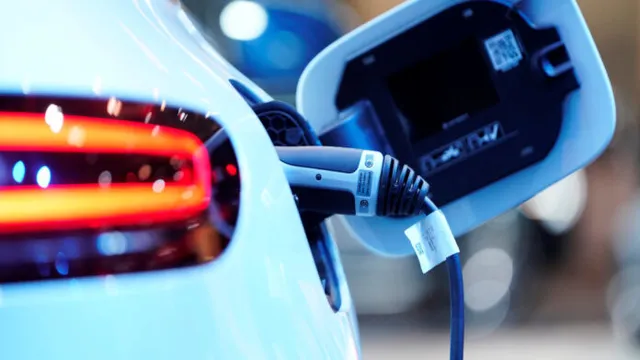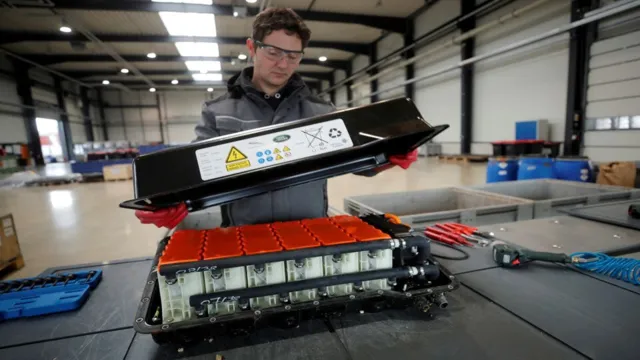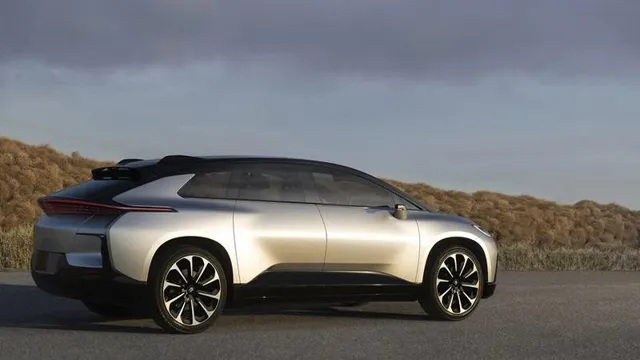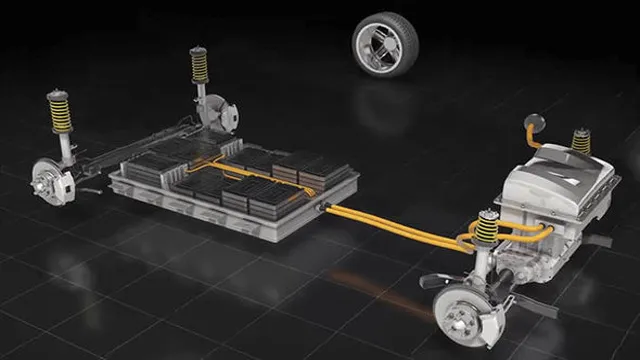Revolutionizing Transportation: The Advancements in Electric Car Technology
Electric cars have come a long way since their initial introduction. The advancements in technology have made these cars more efficient, affordable, and convenient than ever before. With the rise of environmental concerns, electric cars are becoming increasingly popular among people who want to reduce their carbon footprint and contribute to a greener future.
These cars offer many benefits over traditional gas-powered cars, including low emissions, energy efficiency, and reduced maintenance costs. In this blog post, we’ll take a closer look at the advanced technology behind electric cars and why they are the future of transportation. From lithium-ion batteries to regenerative braking systems, we will explore how these innovations make electric cars a viable option for drivers.
So, get ready to find out how electric cars are changing the game and why they are here to stay.
Sustainability and Environmental Benefits
Electric car technology has advanced tremendously in recent years, and it now offers a wide range of sustainability and environmental benefits. One of the most obvious advantages of electric vehicles is their lower emissions compared to traditional gasoline cars. This is because electric cars produce no tailpipe emissions, meaning they release no harmful pollutants into the air.
This is especially important in cities where air pollution is a significant problem. Additionally, electric cars are more energy-efficient than combustion engine cars, which means they require less energy to travel the same distance. This results in lower energy consumption and less dependence on fossil fuels, reducing our carbon footprint and helping to mitigate climate change.
Finally, many electric cars are now powered by renewable energy, such as wind or solar power, which provides even greater environmental benefits. All of these factors combine to demonstrate that electric car technology has advanced enough to provide a cleaner and more sustainable future for us all.
Reduced Emissions and Carbon Footprint
Reduced emissions and carbon footprint have become buzzwords in the modern world as we collectively strive towards sustainability and environmental protection. The concept revolves around reducing harmful greenhouse gas emissions, such as carbon dioxide, methane, and nitrous oxide, that contribute to global warming and climate change. Among the sustainable practices companies are adopting include reducing energy consumption, switching to renewable energy sources, recycling, and utilizing eco-friendly technologies.
By reducing the amount of carbon released into the atmosphere, we can collectively reduce our carbon footprint and mitigate the negative impact on the environment. With every effort geared towards sustainability and environmental protection, we are inching closer to a healthier planet for ourselves and future generations.
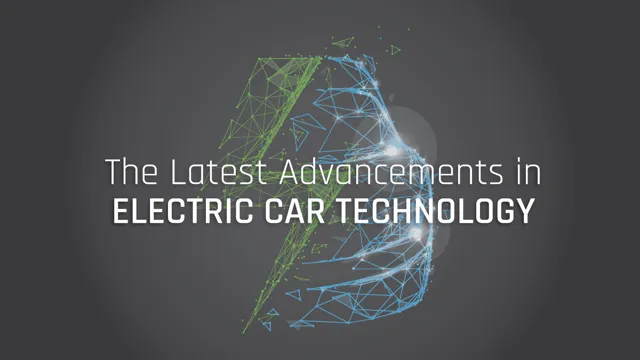
Energy Efficiency and Renewable Energy Sources
Energy Efficiency, Renewable Energy Sources, Sustainability, Environmental Benefits When it comes to energy consumption, implementing energy-efficient practices and utilizing renewable energy sources are essential steps towards achieving sustainability and reaping environmental benefits. Energy efficiency refers to using energy in the most efficient way possible, minimizing energy wastage, and reducing the overall amount of energy consumed. This can be achieved through simple measures such as using LED light bulbs, optimizing building insulation, and selecting energy-saving appliances.
Renewable energy sources, such as solar, wind, hydro, and geothermal power, are becoming increasingly popular as an alternative to non-renewable energy sources like fossil fuels. These sources of energy are sustainable, non-polluting, and inexhaustible. By utilizing renewable energy sources, we can significantly reduce our dependence on fossil fuels and thereby lower greenhouse gas emissions.
Ultimately, incorporating energy efficiency measures and utilizing renewable energy sources can contribute to a healthier environment, reduce our carbon footprint, and ensure a sustainable future for generations to come.
State of the Art Features and Performance
Electric car technology has advanced tremendously in recent years, making it a highly competitive alternative to traditional gasoline-powered vehicles. Advancements in battery technology, charging infrastructure, and motor efficiency have greatly increased the range, performance, and overall driving experience of electric cars. For example, most modern electric cars boast ranges of 200-300 miles on a single charge, with some models even exceeding 400 miles.
Additionally, many new electric cars feature fast charging capabilities, allowing drivers to recharge their vehicle in a matter of minutes at public charging stations. As a result of these advancements, electric cars are no longer just a niche market for environmentally-conscious buyers, but a practical and attractive option for mainstream consumers as well. With the ongoing development of new technology, electric cars are likely to continue improving in terms of both features and performance, cementing their place as a leading force in the automotive industry.
Longevity and Durability of Electric Cars
When it comes to the longevity and durability of electric cars, state-of-the-art features and performance are essential components to ensuring a long-lasting, dependable vehicle. One significant advantage of electric cars is their reduced number of moving parts compared to traditional gas-powered counterparts, which translates to less wear and tear over the life of the car. Additionally, many electric car manufacturers offer long warranties on their batteries to account for any potential degradation over time.
Looking at Tesla, for example, their Model S and Model X come with an eight-year, infinite-mile warranty on their batteries, demonstrating the company’s confidence in the long-term performance of their vehicles. As technology continues to advance and electric car adoption increases, we can expect to see even more improvements in the lifespan and reliability of these environmentally friendly cars.
Power and Speed of Electric Cars
Electric cars have come a long way since their inception, and their state-of-the-art features and performance continue to impress. The power and speed of electric cars are some of their most attractive features. They can accelerate from 0-60 mph in just a few seconds, and can easily reach top speeds of over 100 mph.
The instant torque of an electric car motor gives it an advantage over traditional gasoline-powered cars, making it feel incredibly quick and responsive. This makes electric cars perfect for driving enthusiasts who enjoy a high-performance driving experience. Additionally, electric cars have become more efficient and can travel greater distances on a single charge.
Long gone are the days of “range anxiety,” with electric cars now able to travel up to 300 miles on a single charge. Overall, electric cars are changing the game when it comes to performance and efficiency on the road, and their popularity is only expected to grow in the coming years.
Advanced Safety Features of Electric Cars
Electric cars have been on the rise in recent years, and with that comes the innovation of advanced safety features. These state-of-the-art features have drastically improved the performance of electric cars. One of the most remarkable features is autonomous emergency braking, which detects when a collision may occur and applies the brakes accordingly.
Additionally, electric cars are equipped with lane departure warning systems that alert drivers when they are swerving out of their lane. Another feature that has become increasingly common is adaptive cruise control, which adjusts the vehicle’s speed based on traffic flow. These safety features not only minimize the risk of accidents but also enhance driving experience.
It’s amazing to see how far technology has come, and it’ll be interesting to see what future features electric cars will bring.
Convenience and Affordability
Electric car technology is advanced enough to make EVs the most convenient and affordable option for many drivers. With increased battery range and improvements in charging infrastructure, electric cars are becoming a practical choice for everyday use. In addition to being better for the environment, EVs offer lower operating costs and reduced maintenance requirements compared to traditional gas-powered cars.
As the market for electric vehicles continues to grow, prices are becoming more competitive, making it easier for drivers to make the switch to clean, efficient transportation. Simply put, electric cars are the way of the future, and there has never been a better time to explore all the advantages they have to offer.
Charging Stations and Remote Monitoring Systems
When it comes to electric vehicles, finding charging stations can often be a hassle for drivers. But with the introduction of remote monitoring systems, these charging stations have become much more convenient and affordable for both vehicle owners and charging station operators. These systems allow operators to monitor station usage, energy consumption, and even perform maintenance and repairs remotely, ultimately saving time and money.
Not only does this benefit the operators, but also the drivers who can rest assured that they will have access to reliable charging stations when needed. Imagine having a personal assistant who monitors your charging and ensures you always have a full battery! It’s like having a gas station, but with much more convenience and affordability. These remote monitoring systems are a game-changer for the electric vehicle industry, opening up a world of possibilities for drivers and operators alike.
Incentives and Tax Benefits for Electric Car Owners
As more people become aware of the environmental benefits of electric cars, governments around the world are introducing incentives and tax benefits to encourage drivers to make the switch. Not only do electric vehicles reduce harmful emissions, but they can also save you a significant amount of money in the long run. From federal tax credits to state rebates, electric car owners can benefit from a wide range of incentives that make them more affordable and convenient to own.
These include reduced registration fees, access to carpool lanes, free charging in public areas, and even cash rebates on your taxes. So, if you’re considering buying an electric car, it’s worth exploring the various incentives available in your region to see how they can help you save money while reducing your carbon footprint.
Innovation and Research: The Future of Electric Cars
Electric car technology has advanced enough that we can confidently say electric cars are the way forward. With the increasing demand for environmentally friendly transport, major car manufacturers are investing heavily in the research and development of electric vehicles. The use of cutting-edge technology in battery development and charging infrastructure has made electric cars more efficient and reliable.
Not only are electric cars much better for the environment, but they also offer a more cost-effective option for drivers. As electric car technology continues to evolve, we will see a significant change in the way people perceive and use automobiles. It’s only a matter of time before electric cars become the norm, and that future looks bright.
Conclusion
In conclusion, electric car technology is advanced enough to transform the way we drive and pave the way for a more sustainable future. With cutting-edge advancements in battery technology, charging infrastructure, and overall performance, electric cars are no longer just a distant dream, but a tangible solution to the pressing issue of climate change. As we continue to push the boundaries of what’s possible, it’s clear that the future is electric, and the possibilities are endless.
So, let’s charge up and hit the road to a cleaner, brighter tomorrow!”
FAQs
How has electric car technology advanced in recent years?
Electric car technology has advanced significantly in recent years, with improvements in battery technology leading to longer ranges and faster charging times. Additionally, there has been progress in motor efficiency and the development of new features like regenerative braking.
Are electric cars more expensive than traditional gas-powered cars?
Initially, electric cars can be more expensive than their gas counterparts. However, there are many factors to consider, including tax incentives, fuel savings, and maintenance costs. Ultimately, electric cars can provide significant long-term savings.
What is the driving range of an average electric car?
The driving range of an average electric car varies by model, but in recent years the average range has increased to over 200 miles on a single charge. Some newer models can even exceed 300 miles on a single charge.
How long does it take to charge an electric car?
Charging times vary based on the model and charging station used. A standard Level 2 charging station can fully charge most electric cars in 4-8 hours, while fast-charging stations can provide an 80% charge in as little as 30 minutes.
